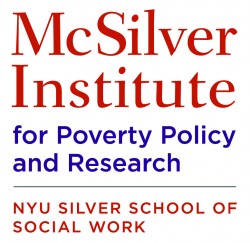In the Spotlight
The Guinea Ministry of Health recently announced the identification of 203 suspected and confirmed cases of Ebola hemorrhagic fever.
Ebola, a viral fever, has no known cure and kills 9 out of 10 of those infected. The research evidence available indicates that the virus is likely animal-borne with its origins stemming from bats. It is believed that the first patient during an outbreak is infected through contact with an infected animal. Then, human to human transmission occurs through contact with blood or secretions from an infected person or exposure to objects contaminated by infected secretions. The virus causes its victims to suffer a great deal, with symptoms including fever, severe headaches, muscle pain, weakness, diarrhea, vomiting, and bleeding that can occur internally and externally.
So what does this have to do with poverty?
While Ebola knows no socioeconomic boundaries, outbreaks of the virus have only been documented on the continent of Africa. Prior to this recent outbreak in the West African countries of Guinea and Liberia, the virus claimed more lives in Central Africa. These nations and areas share the consistent prevalence of extreme poverty. It is mostly African countries, including the aforementioned, that are frequently near the top of the list of the world’s most impoverished.
Blaming cultural practices or poverty-linked practices of living, such as the potential link between poor rural regions consuming bush meat which could be contaminated by the virus, stigmatizes those stricken by this rare virus or by curable illnesses such as malaria, or diarrhea. Even though it is often inappropriate and counterproductive to blame culture or practices of different populations, poverty and socioeconomically oppressive structures propel the spread of disease.
It is poverty that further stigmatizes those who have been infected with a virus that is largely misunderstood by rural communities and scientists alike. It is poverty that causes overcrowded health care clinics that are unable to maintain a standard of sanitation due to a lack of funds which allows for the spread of disease. It is poverty that stigmatizes culture to be part of the source of their suffering. Fighting poverty and fighting disease are inextricably mixed, and neither one should operate in an isolated silo.
Direct Service Implications
While the direct service implications for combating global health issues and poverty are extensive, the Ebola outbreak reminds us to engage in understanding the shortcomings of socioeconomic structures and not of culture. By blaming cultural practices or a specific group of people, we hinder progress toward the end of the spread of deadly viruses or even curable and preventable diseases.
In Haiti, a deadly strain of cholera has become endemic to the poor country. Haiti’s inability to contain the bacterial infection comes down to the impoverished nation’s poor infrastructure and its lack of developed sanitation systems, which spreads the bacteria.
Another unique component of the spread of cholera in Haiti is the specific strain that has been making its way through the country. Based on forensic studies, the strain of cholera is believed to have come from Asia. Hundreds of United Nations peacekeepers deployed in Haiti came from Nepal, which likely indicates that the bacteria which is now wreaking havoc on Haiti, came with United Nation’s relief workers.
Beyond engaging in dialogue that sheds light on the true issues that contribute to the outbreak and spread of disease, the spread of cholera in Haiti reminds us that direct service providers, particularly those who work internationally, must take extensive health precautions to prevent bringing disease in or out of nations and communities. The first and easiest way of ensuring this is to begin planning for any trip abroad with a visit to the Centers for Disease Control and Prevention website. The site provides a comprehensive overview of health risks when traveling and how to prevent the spread or contraction of disease.
Courtesy of McSilver Institute of Poverty Policy and Research who has kindly given SJS permission to syndicate this piece.
Disclaimer: The views and opinions expressed in the Policy News Briefs are not necessarily the views of the McSilver Institute for Poverty Policy and Research or NYU’s Silver School of Social Work. If you have comments or suggestions about this service, contact us at mcsilver@nyu.edu.
Sources:
Our authors want to hear from you! Click to leave a comment
Related Posts



